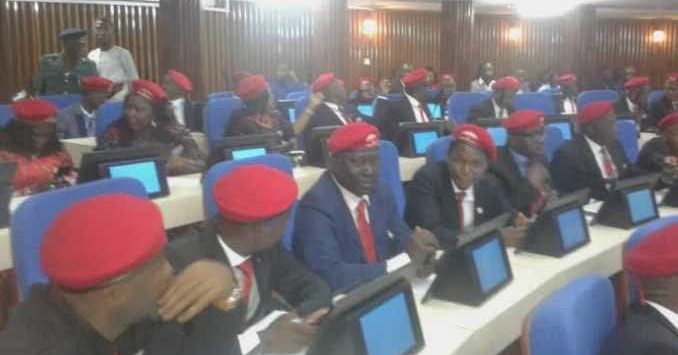The All People’s Congress (APC), Sierra Leone’s main opposition party, has faced significant challenges in effectively countering President Julius Maada Bio’s governance since his disputed and highly contested re-election in June 2023.
APC’s internal divisions, strategic missteps, and limited institutional influence have hindered its ability to serve as a robust watchdog on the governance inefficiency of the ruling Sierra Leone People’s Party (SLPP).
What Might have Caused this Governance Inadequacy by the Opposition?
Post-2018, the APC has grappled with leadership disputes and factionalism, lacking a unifying figure to steer the party cohesively. The departure of former President Ernest Bai Koroma left a leadership vacuum, with various factions vying for control, leading to a fragmented party structure – as the cases of the “Big Six”, NRM, The Alfred Peter Conteh and likes to mention but a few.
This reminds me of the saying of Pres. Obama: “We don’t need strong men, but strong institutions.” Therefore, the stronger nature of Pres. Ernest Bai Koroma over the institution (APC) led the party to power or leadership struggle after his tenure as chairman.
Public View on the Silence of the Opposition
The APC’s credibility has been further undermined by public scepticism. Critics argue that the party has failed to present a coherent alternative to the SLPP, focusing instead on internal disputes and reactive politics. This view has eroded public confidence in the APC’s ability to effectively challenge the government’s failures to address issues around corruption, high: cost of living, inflation, unemployment, abuse of power, and injustices.
Consequences of Unchecked Executive Power
Without effective opposition, the Bio administration faces little resistance in consolidating power. As such, citizens increasingly view both the ruling and opposition parties as ineffective to exist and this inadequacy threatens democratic participation.
In a nutshell, the APC’s failure to effectively check President Bio’s governance stems from internal disunity, strategic errors, limited institutional influence, and waning public credibility.
In order to fulfill its role as a viable political party that might form the next government, the APC must undertake significant reforms to rebuild its leadership, unify its factions, and reestablish public trust as plans are underway to elect a flag bearer next year.




 1 Comment
1 Comment










THE OPPOSITION IN SIERRA LEONE CAN’T POINT AN ACCUSING FINGER ON THE GOVERNMENT BECAUSE, THE OPPOSITION IS MORE CULPABLE THAN THE GOVERNMENT IN TERMS OF CORRUPTION, UNDEMOCRATIC NATURE AND LACK OF VISION FOR THE COUNTRY. A POT CAN’T CALL A TEA POT BLACK.THE OPPOSITION, APART FROM BEING FRACTURED BY THE GOVERNMENT INTO DISJOINTED ENTITY, THEY ARE VERY UNPROGRESSIVE, WASHES ITS DIRTY LINEN IN PUBLIC AND A TOOTHLESS BULL D0G. IN PARLIAMENT, THE OPPOSITION CONNIVED WITH THE GOVERNMENT TO SACK THE AUDITOR GENERAL. MAJORITY OF THE OPPOSITION TOP BRASSES ARE TIED UNDER THE GOVERNMENT’S APRON FOUND GUILTY OF CORRUPTION AND SUCH OFFICIALS ARE CLINGING ON TO REALMS OF OFFICES. THE VULNERABLE MAJORITY OF SUPPORTERS AND SYMPATHISERS ARE IGNORANT OF THE FACT THAT, THESE SELFISH OFFICIALS ARE HANGING ON TO SAVE THEIR SELFISH CORRUPT FACES AND NOT IN THE INTERESTS OF THE PEOPLE THEY CLAIMED TO REPRESENT. IT IS A FACTUAL EVIDENCE THAT, THE 10 – 12% OF NEUTRAL VOTERS IN SIERRA LEONE ARE SEEING THE 0PPOSITION AS FRAGMENTED AND UNPROGRESSIVE FORCE D0OMED FOR PERMANENT OPPOSITION IF THE RIGHT PERSONNELS DON’T TAKE CHARGE NOW, RIGHT NOW!! OTHERWISE, IT WILL BE A TIME BOMB TICKING TO EXPLODE. PEOPLE ARE BEGINNING TO ENVISAGE, THE WORST SLPP GOVERNMENT IS THE BEST APC GOVERNMENT.